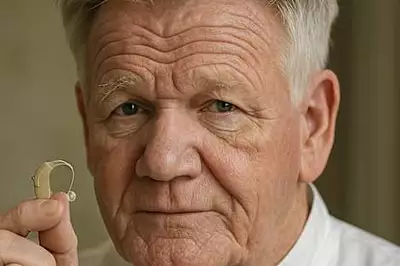President Donald Trump’s repeated talk about acquiring Greenland from Denmark has prompted some eye-rolling and diplomatic blowback, but it got a respectful airing Wednesday in the first Capitol Hill hearing of the new Congress to actually consider the merits of the idea.
Democrats remain deep skeptics: Maryland Rep. Steny H. Hoyer denounced the idea as “absurd,” a House bill has been submitted to rename the massive Arctic island “Red, White and Blueland,” and there has even been a satirical counterproposal from a group of Danes proposing to take control of California.
But the notion of buying strategically located, resource-rich Greenland and making it formally part of the U.S. isn’t so far-fetched and has been explored several times in the past, a panel of Arctic and security specialists told lawmakers on the Senate Commerce, Science and Transportation Committee.
Mr. Trump floated the idea of purchasing Greenland from Denmark in 2019 during his first term in the White House. His interest in the 836,000-square-mile island has only increased since his return to office. He said Greenland is essential to America’s economic and national security and has said the U.S. will move to take it.
Senate Commerce Committee Chairman Ted Cruz, Texas Republican, noted that the U.S. assuming control of Greenland from an unwilling-to-sell Denmark was initially dismissed as a “wild proposal.”
“But given shifting global dynamics, the geopolitical importance of Greenland makes this conversation one we can no longer ignore,” Mr. Cruz said Wednesday. “It’s a topic of interest to both sides of the aisle.”
Greenland isn’t merely some remote island of little interest to America. It’s home to “rare earth” minerals critical to a number of key high tech products that the U.S. largely relies on China to supply. Greenland’s proximity to critical maritime trade routes opening up as the Arctic ice cap recedes also has given it new strategic significance in recent years, Mr. Cruz noted.
“Greenland sits directly on the shortest flight path for intercontinental ballistic missiles traveling from Russia and the Middle East to the U.S., making its positioning critical to our security,” he said. “We have maintained a military presence in Greenland since World War II.”
The Pituffik Space Base serves as the northernmost U.S. military installation and provides critical missile warning and space surveillance, he said.
“The base, along with its deepwater port and airfield, is an integral part of our national security infrastructure,” Mr. Cruz noted.
Alexander Gray, a senior fellow at the American Foreign Policy Council, told lawmakers that the president’s unexpected focus on Greenland’s future has resulted in critical public attention to the island’s mounting strategic importance.
“While this topic has only recently gained widespread public attention, Greenland has long been a focal point for U.S. strategists looking to safeguard the periphery of our hemisphere,” Mr. Gray said.
He said the discussion over Greenland has largely been with Denmark, which has controlled the island since 1814. It has been self-governing since 2009.
“Denmark is a key ally of the United States, [but] this debate must move beyond U.S.-Danish relations because that is simply ancillary to the larger choice facing the United States,” Mr. Gray said.
He said Greenland is on a clear track to eventually be fully independent of Copenhagen’s control at some point in the future.
“When this will happen is subject to debate,” Mr. Gray said. “It is vital that leaders in Washington take seriously what the Greenlanders are telling us.”
Sen. Gary Peters, a Michigan Democrat, said Denmark and Greenland are both interested in increasing cooperation with the U.S. on a variety of topics, including scientific research, economic development and national security, and that Mr. Trump’s aggressive rhetoric on Greenland only sets back U.S. national interests.
“I find it troubling that while our ally is aggressively and actively seeking increased partnership with the United States, we have President Trump who insists on purchasing land that is simply not for sale,” Sen. Peters said. “The president suggesting that the United States needs to ‘own’ Greenland to defend our national security is wrong. Threatening our NATO allies in this fashion undermines our shared mission to work together as allies to counter both Russian and Chinese footholds in the Arctic.”
Sen. Bernie Moreno, Ohio Republican, said Democrats in Congress have called Mr. Trump’s desire to purchase Greenland a “click-bait distraction.” The Ohio Republican asked panelists testifying Wednesday whether they agreed with that description.
“Not at all, and I would say that President Trump’s expressed interest in Greenland during his first administration yielded very significant steps forward in the U.S.-Greenland relationship,” said Rebecca Pincus, director of the Polar Institute at the Wilson Center think tank.
The reopening of the U.S. consulate in Nuuk, Greenland’s capital, was a direct result of Mr. Trump’s intervention in his first term. It was a “landmark accomplishment that has done tremendous good for the U.S.-Greenland relationship,” Ms. Pincus said.
A U.S. acquisition of Greenland would not come about as a result of military force but rather diplomacy and shared interests, Mr. Cruz said.
“The U.S. and Denmark have a strong relationship and discussions about Greenland’s future do not have to be adversarial,” he said.
Any decision would also require the approval of the people of Greenland, likely through a public referendum. The benefits for them would be significant, including acquiring American citizenship and the billions of dollars of investment that would raise the standard of living for the country’s 50,000 residents, Mr. Cruz said.
“Greenland sits atop vast reserves of rare earth elements — materials crucial for everything from technology to national defense. These elements are vital for the production of smartphones, military equipment, medical technologies and procedures, and much more,” Mr. Cruz said. “If the U.S. were to gain access to Greenland’s resources, it could significantly reduce our dependence on foreign suppliers, particularly China, which currently operates a virtual monopoly on the rare earth market.”
Washington state Sen. Maria Cantell, the ranking Democrat on the Senate Commerce Committee, stressed the importance of a new Arctic strategy that would solidify American leadership in the region and allow collaboration with longstanding U.S. allies to meet the threats from Russia and China.
“Instead of starting a new trade war, America must reinvigorate and expand cooperation with our allies, including Canada and other Nordic countries,” she said. “Over time, Greenland can be a rich source for critical minerals, but there are still high barriers to that development without the participation of Europeans.”

